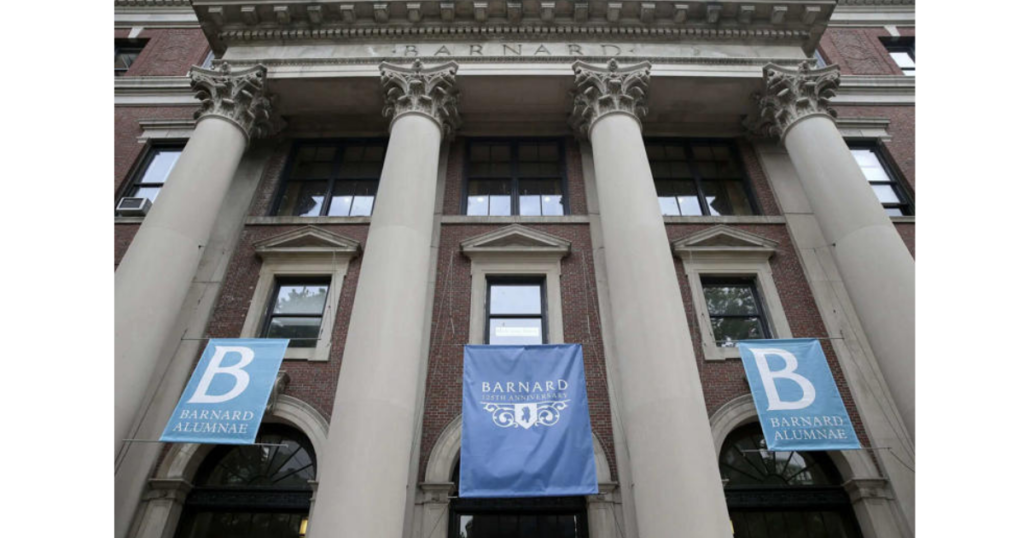US Colleges- Barnard, Columbia, NYU, and MIT are rolling out AI tools, training, and ethics programs to ensure graduates are career-ready for the age of AI.
Barnard College has taken a decisive step into the AI age, joining a growing wave of US institutions weaving artificial intelligence into everyday student life. Starting August 1, every Barnard student will have access to Google’s Gemini and NotebookLM via their campus email—an expansion of its partnership with Google announced on July 29. The college frames this as a commitment to giving all students a “basic level of AI literacy,” ensuring no one graduates without essential digital skills.
This shift is part of a nationwide race. Across the United States, universities are embedding AI tools, professional development pathways, and ethics training into coursework—cementing AI proficiency as a must-have for the next generation of graduates.
Barnard College: Building a Structured AI Literacy Pathway
Barnard isn’t just handing students AI logins—it’s offering a roadmap. Its newly designed four-level AI Literacy Framework moves learners from basic awareness of AI concepts to advanced, field-specific applications, ending with the ability to critically evaluate and use AI responsibly.
This fall, the rollout will include workshops, AI studios, and collaborative sessions tailored to each stage of the framework. The idea is to help students build skills step-by-step, ensuring they leave college not just familiar with AI, but capable of applying it thoughtfully in their disciplines.
Columbia University: Creating Professional AI Leaders
Columbia is blending academic and industry needs with its Professional Certificate Program in Artificial Intelligence, which covers machine learning, robotics, and intelligent systems. Offered online and in executive formats, it caters to both working professionals and on-campus learners.
The university also equips its community with homegrown tools like CU-GPT and CHAT, plus access to ChatGPT Education. Through its Center for Teaching and Learning, faculty are encouraged to pair AI-powered assignments with reflective exercises, so students learn how and why to use the technology.
New York University: AI for All Ages and Majors
NYU’s AI strategy spans from high school to postgraduate levels. NYU Shanghai’s AI Pre-College Summer Program introduces teenagers to Python, NumPy, PyTorch, AI ethics, and project-based learning.
The university’s Tandon School of Engineering and other divisions run AI workshops for healthcare, media, and public policy students, while also offering Gemini and NotebookLM access to its community. Every program comes with guidance on responsible AI use, ensuring that enthusiasm is matched with caution.
MIT: Multiple Entry Points to AI Expertise
MIT has built a versatile AI learning ecosystem for both coders and non-coders. Its Professional Certificate Program in Machine Learning & Artificial Intelligence serves advanced learners, while low- and no-code courses make AI accessible to professionals without a technical background.
Globally, MIT’s outreach through the RAISE (Responsible AI for Social Empowerment and Education) initiative has reached over a million K–12 students via projects like FutureMakers and Day of AI. On campus, approved tools—such as Adobe Firefly, AWS Bedrock, Azure OpenAI, and Google Gemini—are provided under strict governance rules.
Why the AI Education Race Is Speeding Up
Tech companies are pushing the momentum. Google has pledged $1 billion over three years to supply AI tools, cloud resources, and training to more than 100 US universities. OpenAI and Anthropic are also offering free campus access and research support in a bid to secure partnerships.
Academic interest is growing too. Studies show that well-designed AI tutors can boost student performance in certain subjects, but educators remain wary of risks—plagiarism, over-dependence, and reduced critical thinking.
Looking Ahead
With its tiered literacy model, Barnard joins Columbia’s professional pathways, NYU’s early-pipeline approach, and MIT’s global outreach in reshaping what “career-ready” means in the AI era. Their strategies differ, but the mission is the same: ensure graduates leave not only with AI access, but with the skill to use it critically, ethically, and effectively.

Free AI Courses for Beginners – No Experience Required (2025 Guide)